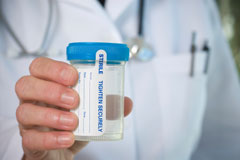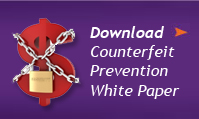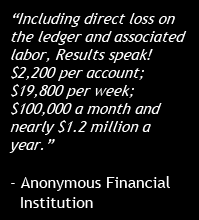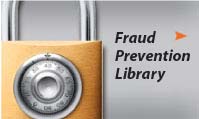
Combat Methamphetamine Epidemic Act of 2005
(HIPPA) Health Insurance Portability and Accountability Act
Legislation Requires Retailers to Join the Battle Against Meth Addiction
Methamphetamine or "meth" has become a tremendous challenge for the entire nation as most states’ law enforcement officials report that meth, by far, is the number one drug problem facing their jurisdictions. .
To combat the production and trafficking of methamphetamine, the Combat Methamphetamine Epidemic Act of 2005 (CMEA) was enacted in the United States on March 9, 2006. This federal legislation regulates, among other things, retail over-the-counter sales of ephedrine, pseudoephedrine, and phenylpropanolamine products because of their use in the manufacture of illegal drugs.
What does Federal Law require a retailer to do in order to continue to sell products containing ephedrine, pseudoephedrine, or phenylpropanolamine?
Retail provisions of the CMEA include daily sales limits and 30-day purchase limits, placement of product out of direct customer access, sales logbooks, customer ID verification, employee training, and self-certification of regulated sellers. In addition, requirements for retailers include:
- Keeping a retrievable record of all purchases identifying the name and address of each party (to be kept for two years)
- Required verification of proof of identity of all purchasers
- Required protection and disclosure methods in the collection of personal information
- Reports to the Attorney General of any suspicious payments or disappearances of the regulated products
- Required training of employees with regard to the requirements of the CMEA; Retailer must self-certify as to training and compliance
- Non-liquid dose form of regulated product may only be sold in unit dose blister packs
- Regulated products are to be sold behind the counter or in a locked cabinet in such a way as to restrict public access
- Daily sales of regulated products not to exceed 3.6 grams without regard to the number of transactions
- 30 day (not monthly) sales limit not to exceed 7.5 grams if sold by mail-order or "mobile retail vendor"
- 30 day PURCHASE limit not to exceed 9 grams of pseudoephedrine base in regulated products (misdemeanor possession offense under 21 USC 844a for the individual who buys it)
Many of the drugs mentioned above are also common ingredients found in cough syrup, cough suppressants, decongestants and other medicines. Regardless of whether the medicine is prescription or over the counter - retailers of such products must adhere with these stringent regulations. Yet, most retailers lack the processes, equipment or the facilities to enable easy capture of the data required under this legislation.
Reduce risk, increase compliance, verify authenticity of ID & deter theft
Fraud Fighter™, a division of UVeritech, offers a proven control framework to resolve this issue. By employing Fraud Fighter’s proprietary set of products across targeted areas of store operations, retailers realize a multi-layered solution for effective identity validation, information capture, and storage so that retail operators can be confident in that they are following leading practices for compliance with Federal legislation.














